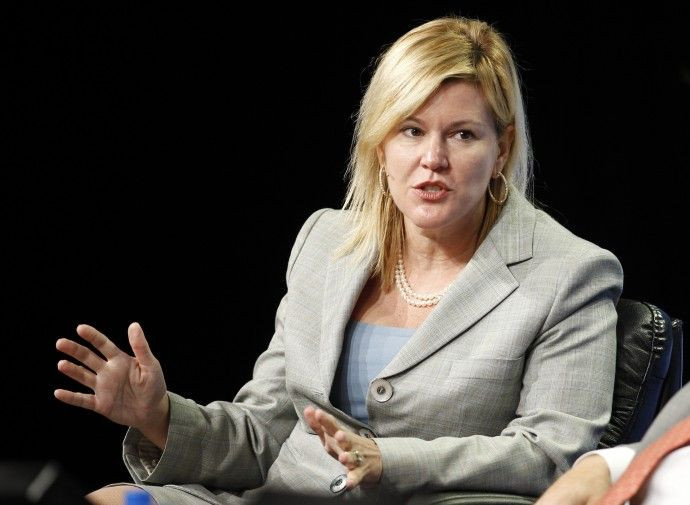Up to 100 U.S. municipalities may default next year: Whitney

Renowned Wall Street analyst Meredith Whitney has warned that the U.S. may witness between 50 to 200 “sizeable defaults” amounting to “hundreds of billions of dollars” among municipal and state governments next year, which could derail the recovery.
Whitney’s comments came during a segment broadcast Sunday evening on the “60 Minutes” television news-magazine program on the CBS network. She is renowned for correctly predicting the global credit meltdown, the collapse of the big banks and Citigroup’s dividend cut prior to the crisis that unfolded.
Over the next twelve months, Whitney said, the U.S. government will be faced with the onerous task of bailing out debt-ridden states are struggling financially. She compared the current fiscal health of city/state governments with that of the banking industry prior to the Lehman Brother collapse.
The similarities between the states and the banks are extreme, to the extent that states have been spending dramatically, growing leverage dramatically, she noted.
You borrow from future dollars to benefit the present, basically generational robbery…. It has tentacles as wide as anything I've seen.”
According to 60 Minutes, U.S. states have collectively spent nearly a half a trillion dollars more than they collected in taxes. Public pension funds are also scarred with a $1-trillion hole.
For example, California faces a $19 billion budget deficit next year, but has a credit rating approaching junk status.
“It now spends more money on public employee pensions than it does on the state university system, which had to increase its tuition by 32 percent,” the program stated.
In addition, 60 Minutes noted, Arizona is so desperate it sold off the state capitol, Supreme Court building and legislative chambers to a group of investors and now leases the buildings from their new owner. The state also eliminated Medicaid funding for most organ transplants.
Next to the housing market crisis, Whitney believes the fragile state of municipal governments (and by extension, the U.S. municipal bond market) us the most pressing financial issue facing the country and the biggest threat to the national economy.
These savage cuts necessary to reduce deficits may imperil the recovery and cause a second double-dip recession in the coming year,” she said.
“A policy which would represent the best trade-off between stimulating the economy and reducing the deficit may be hard to come by. Whether it makes economic sense or not states and municipalities will simply be forced to cut spending and in doing so reduce economic activity.”
Chris Christie, the governor of cash-strapped New Jersey, also appeared on the program, and largely was in accordance with Whitney’s dire views on state government finances.
The day of reckoning has arrived, that's it,” he warned.” And it's going to arrive everywhere.
Christie, a Republican in his first term, has already cut more than $1.3-billion in aid to New Jersey schools and municipalities in order to reduce a deficit that is almost $11-billion for the next fiscal year.
States pension and debt costs have become “unsustainable,” the Governor surmised.
We spent too much on everything,” he added. “We spent money we didn't have. We borrowed money just crazily. The credit card's maxed out, and it's over. We now have to get to the business of climbing out of the hole. We've been digging it for a decade or more. We've got to climb now, and a climb is harder.
© Copyright IBTimes 2024. All rights reserved.





















